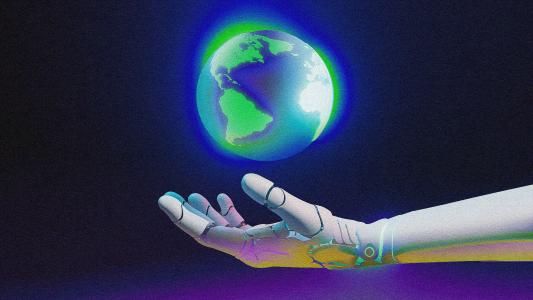The race to build the world’s first AI software engineer just got a new entrant — and they may have already won.
AI software engineer: Computer code underpins practically everything we see and do on our devices, not to mention a vast and growing number of jobs and businesses, which means the people writing that code — software engineers — play an essential role in shaping the digital world.
But what if anyone could write their own code without first spending months or even years trudging through bootcamps and tutorials? What if it was as easy as describing the app or website they wanted to create to an AI software engineer?
Several startups are racing to make this vision a reality, and one of them — the Peter Thiel-backed Cognition Labs — believes it is already crossing the finish line with Devin, “the world’s first fully autonomous AI software engineer.”
“Devin is a tireless, skilled teammate.”
Cognition Labs
Introducing Devin: On March 12, Cognition emerged from stealth to publish a detailed blog post on Devin that included several demo videos showing how users could easily prompt the AI to build and deploy apps, debug existing code, and even train brand new AIs.
“Devin is a tireless, skilled teammate, equally ready to build alongside you or independently complete tasks for you to review,” wrote Cognition. “With Devin, engineers can focus on more interesting problems and engineering teams can strive for more ambitious goals.”
The reaction: The Twittersphere was quick to weigh in on Devin, with several tech leaders praising the AI — Rowan Cheung, author of the popular AI newsletter The Rundown, for example, said it was “the most capable autonomous coding agent [he’s] seen.”
Cognition has started making Devin available to select users upon request, too, and those who’ve had a chance to test it seem impressed as well.
Bloomberg reporter Ashlee Vance, for example, said it only took about 5-10 minutes for Devin to create a website from the ground up and noted that the AI “does appear to be well ahead of the other coding assistants in many respects.”
Looking ahead: Exactly how Cognition managed to jump ahead of the pack isn’t clear — it’s yet to elaborate on how its AI software engineer works, but says it plans to publish a more detailed technical report “soon.”
As for when it plans to make Devin widely available, that’s TBD, so another company training AIs to code — like Magic AI — could potentially beat Cognition to market.
Regardless of who gets there first, though, if any of these companies is able to develop a true AI software engineer that anyone can use, it could be one of the most powerful applications for AI the world has ever seen.
We’d love to hear from you! If you have a comment about this article or if you have a tip for a future Freethink story, please email us at [email protected].






